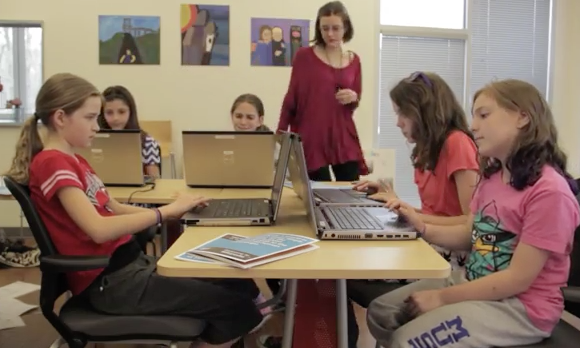
By Cody Gomez
In Who’s Wired and Who’s Not: Children’s Access to and Use of Computer Technology, H.J. Becker investigates the “digital divide”. This phenomenon is characterized by a gap in access to computers based on socio-economic status. Becker discovered that while the use of computers in school can offset the divide, there are various factors depending upon how effective schools can be at ameliorating the divide’s effects. He found that lower-income students typically used computers at school for repetitive actions, despite using them more frequently. Whereas, higher-income students used computers at school less frequently, but they engaged in creative and complex applications. As a result, while the issue of access alone seems to be solved, the question of whether the students are skilled or not on the computer as a result, remains unanswered. Largely, the teaching objectives of the teachers and educators impact whether or not access to a computer translates to knowledge of using a computer.
This distinction can have implications for our WikidGRRLS research, for instance by exploring in more detail for which tasks exactly students do use school computers. Depending on what skills are emphasized, it may be that while some students know how to use some functions of the computer, they do not know how to problem solve and use the computer in a holistic sense.
Another article, Scaling the Digital Divide: Home Computer Technology and Student Achievement by Jacob L. Vigdor and Helen F. Ladd, found that access to computers at home does not entail higher test scores and the closing of achievement gaps. If working within low-income areas, this becomes a crucial point of contention for the opportunities afforded to low-income children later on in their education. They argued that internet access, contrary to improving test scores — due to, perhaps, access to information and knowledge — actually seemed to lower test scores due to the possibility of distraction. While this point may or may not hold, their conclusion is that the duty falls on the schools to teach holistic computer use skills to students. Both articles agree as to the important role of schools in furthering children’s computer education.
However, there is a drawback to these studies: One was first mentioned study was published in 2000, and the latter in 2010. While this may not appear dated, the research does not take into account internet access through phones, essentially, hand-held computers. The pace with which technology now advances is astonishing. And, it seems near impossible to gather sufficient data for research purposes that would not be dated the moment it is published. If we use “computer” to refer to all computing devices, such as smart phones, tablets, netbooks, smart devices etc. then the conclusions drawn above may change dramatically. However, one point does hold: that education in the use of computers, to further opportunities after secondary education, must occur in the schools.
One possible area of study we could explore is what exactly it means to know how to use a computer in a holistic sense. Data could be gathered from reports on the economy and the demands of the job market. But, this still leaves us with another crucial question: in learning to use a computer for a job or for school, does the student know how to use the computer solely for tasks or entertainment, or as an extension of herself? Our WikidGRRLS project is an attempt to foster knowledge and skills that address the latter concern. And, there is merit in empowering individuals to use tools available to them to their fullest extent.
Wikid GRLLs was one of the 2012-2013 FIA-Deutsch Seed Grant Competition winners. You can learn more about their continuing work on the Wikid GRLLS blog.




